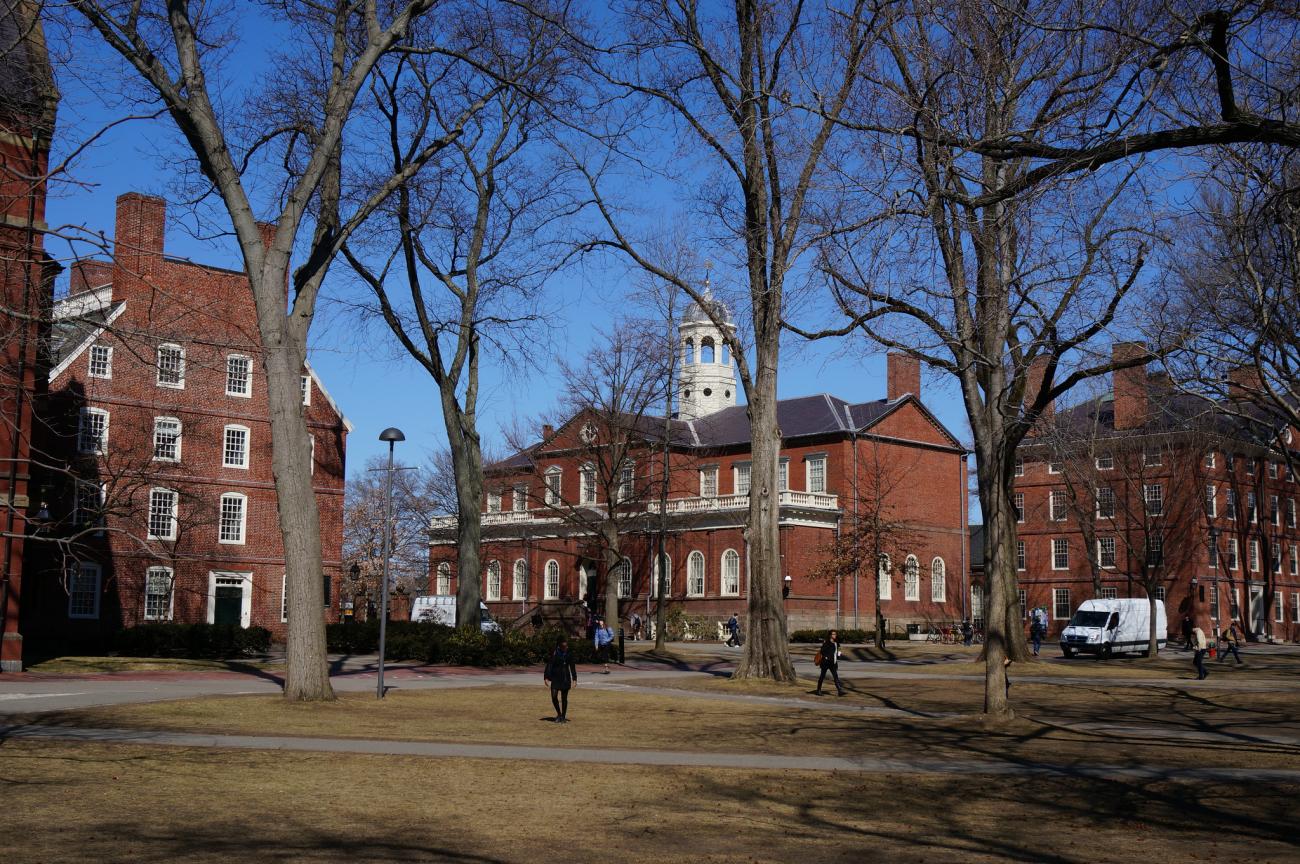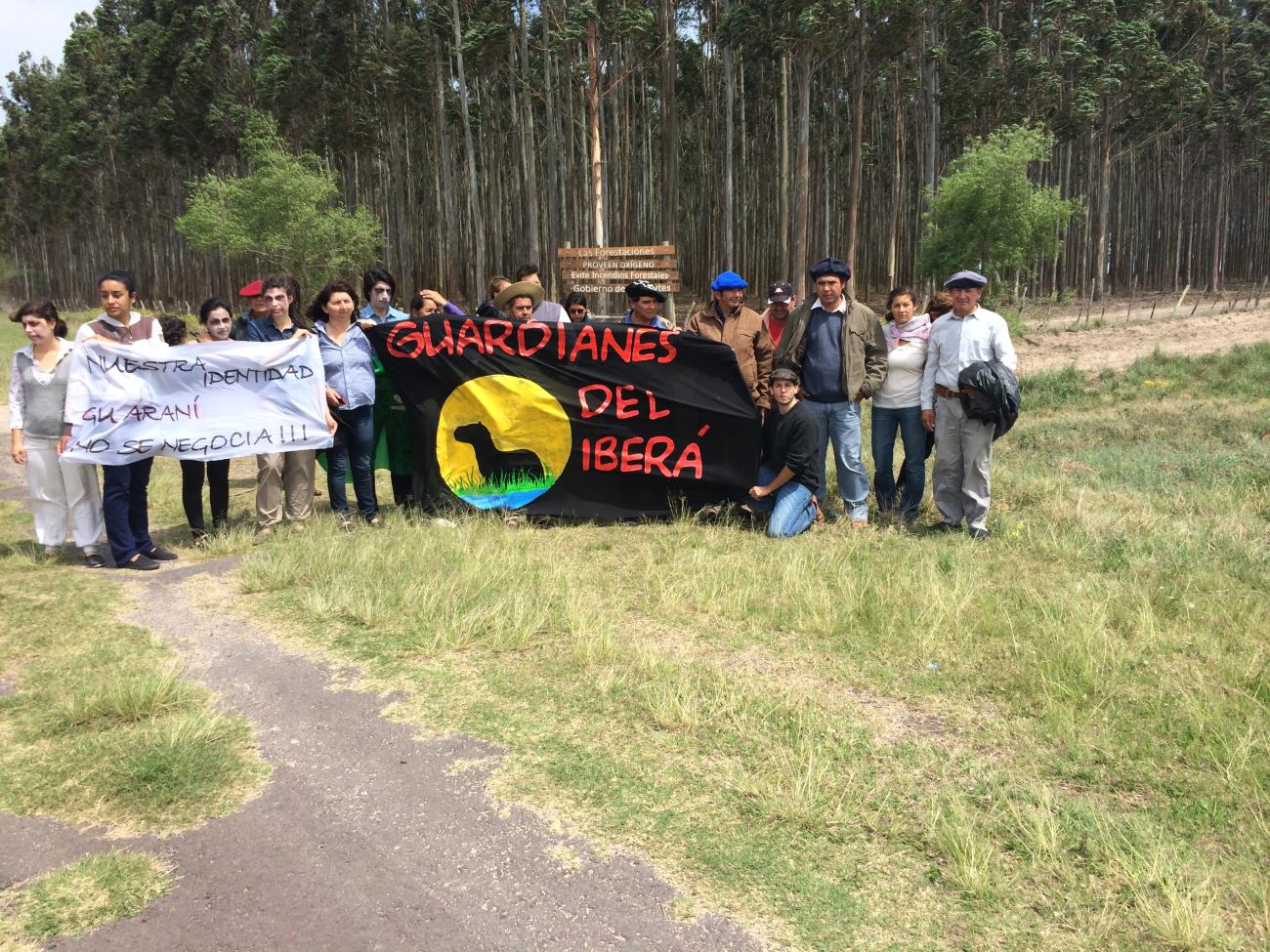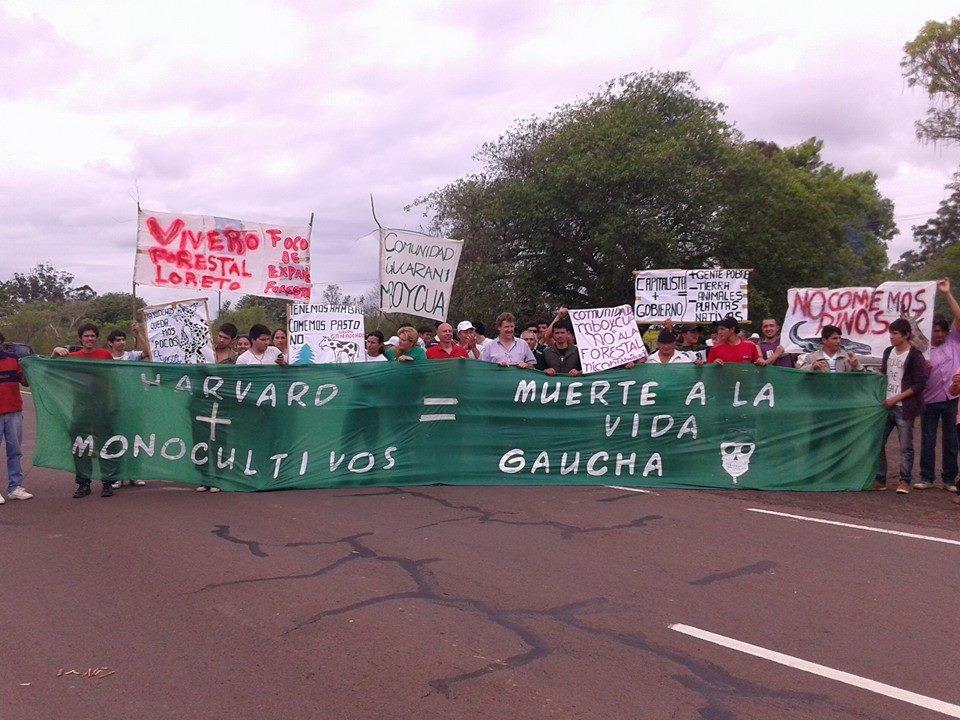


Impelled to promote a higher ethical standard for the university seven student leaders at Harvard have filed a lawsuit against the university for shirking its responsibilities to its students, to the public, and to future generations.
Two years of divestment campaigns, protests outside the President’s office, and a petition filed by five professors at Harvard have asked the administration to put its values and educational mission first, and discontinue its financial support of fossil fuel industries and plantations that perpetuate global warming and treat Indigenous territories as environmental sacrifice zones. Yet, Harvard appears gridlocked between traditionally pursued short-term returns and the long-term reinvestment solutions desired by many students, faculty and alumni.
In an attempt to hold their university accountable for its spectacular increase of shares in the oil and gas industries in the third financial quarter of 2014, seven student leaders filed the lawsuit in Boston courts in November, and the university is due to appear in court next month, in February.
The suit argues that for Harvard to uphold its investments is inconsistent with the university’s stated goals of integrity, as the university on separate occasions has acknowledged that the dangers posed to communities and future generations by climate change are severe, impending, and a direct result of the standard practices of fossil fuel industries.
The students maintains that it is the responsibility of leading institutions like Harvard to address the reality of climate change as a part of its commitment to the improvement of society. In October 2013 President Drew Faust responded to the concerns of the Harvard community, stating, “the endowment is a resource, not an instrument to impel social or political change.” Yet, Harvard has divested from morally faltering industries in the past—Gulf Oil, Darfur, and tobacco companies, for instance.
Fossil fuel industries should be no exception, but Harvard has, in the last quarter of 2014, increased its shares sevenfold—from $11.8m to $79.5m, according to an analysis of Securities and Exchange Commission filings by Harvard’s divestment activists. Investments have been put most heavily towards Anadarko, a petroleum company involved in the Deepwater Horizon oil spill in the Gulf of Mexico, along with many other companies that practice hydraulic fracking. Harvard’s fossil fuel holdings could be even more expansive than reported in SEC filings, as much of their $34bn endowment is not held in direct investments.
Harvard’s recent trend in negligent investment practices has extended far beyond backing fossil fuel corporations. In the province of Corrientes, Northern Argentina, Harvard is the major shareholder in two mono-crop pine and eucalyptus plantations, EVASA and Las Misiones, which have damaged more than half of the precious wetland ecosystems of Iberá, once the site of thirty percent of the country’s biodiversity as well as several endangered species and home to villages of small scale Guaraní farmers. Guaraní community leaders met with the Harvard Management Company responsible for overseeing Harvard’s endowment and financial assets, including the Corrientes plantations, to present their request for local dialogue with the company, but Harvard has refused to do so. Meanwhile, the plantations continue to catalyze water shortages and decimate ancestral lands treasured for their spiritual and sustenance value. Neither the companies, nor the government of the Argentina, obtained Free and Prior Informed Consent before launching the project, despite their obligation to do so under the UN Declaration on the Rights of Indigenous Peoples, Convention 169 of the International Labor Organization, and Forest Stewardship Certification that the plantations hold.
As Harvard has refused open dialogue on this issue with the residents affected by their plantations, they continue to ignore their own students voicing the same concerns. Student groups like Responsible Harvard, Divest Harvard, and now the Harvard Climate Justice Coalition, who filed the law suit, hope courts will mandate the university to listen to address these pressing concerns. Through legal action, students hope to set a precedent for better communications with the university. According to the Harvard Climate Justice Coalition, “Students, alumni, and faculty have spent two years trying to engage Harvard in a thoughtful and open debate, but the administration has rebuffed us at every turn. They’ve refused to hold a public discussion on campus, refused to hold open meetings with students, and repeatedly tried to brush the issue aside.” The lawsuit presents students themselves as both victims of and unwillingly complicit in the abuses of fossil fuel companies, making it clear that the consequences of unsustainability are ubiquitous, and will not be shoved off on silenced communities alone. “The human suffering caused by climate change is drastic. In this situation, we have to use all of the tools at our disposal, including the law.”


